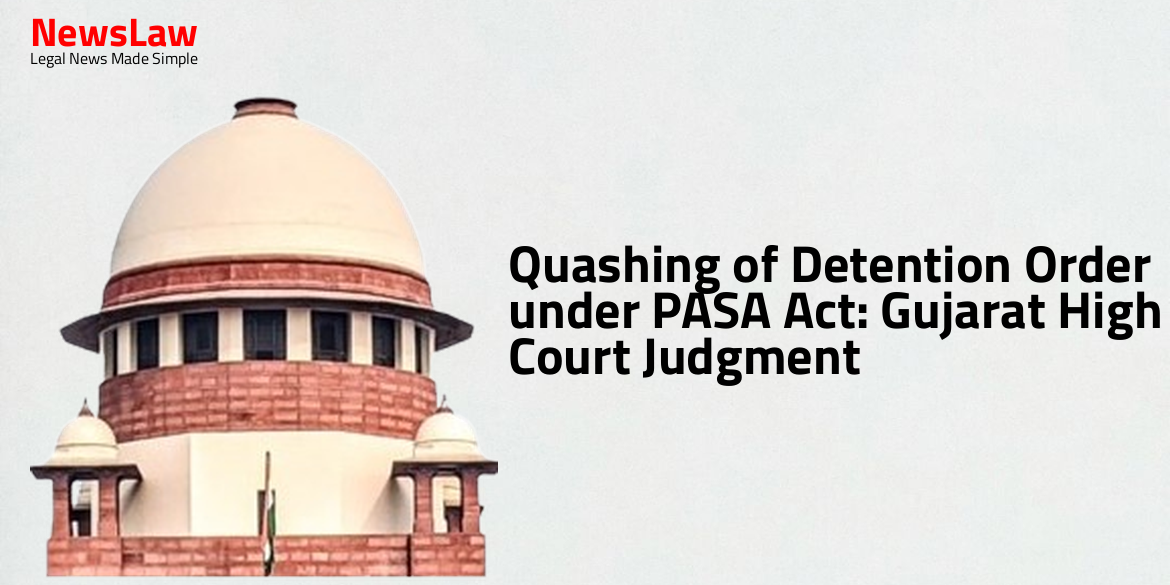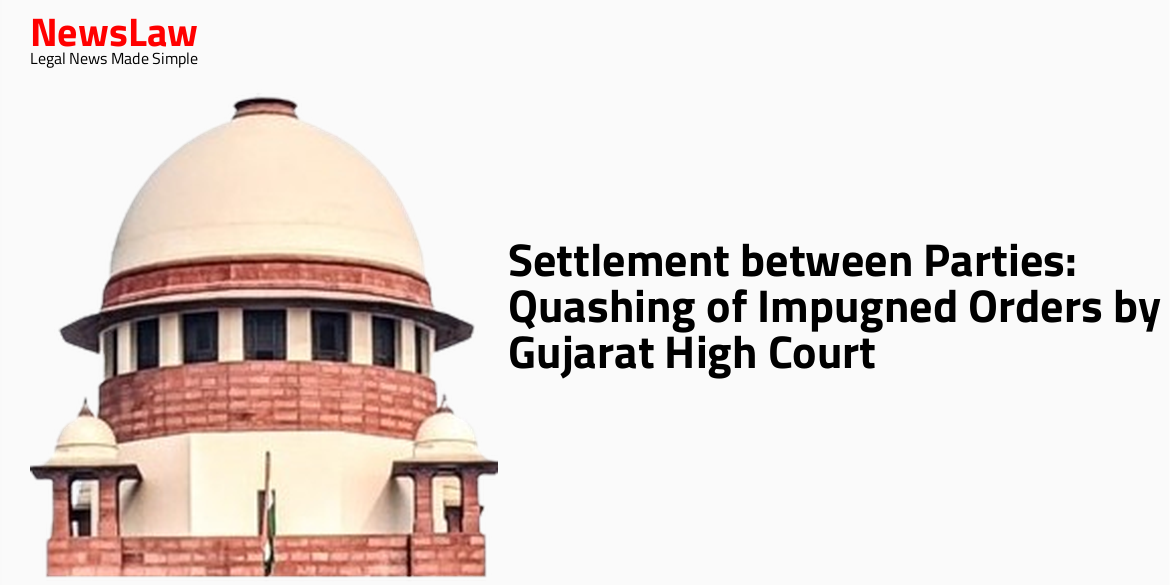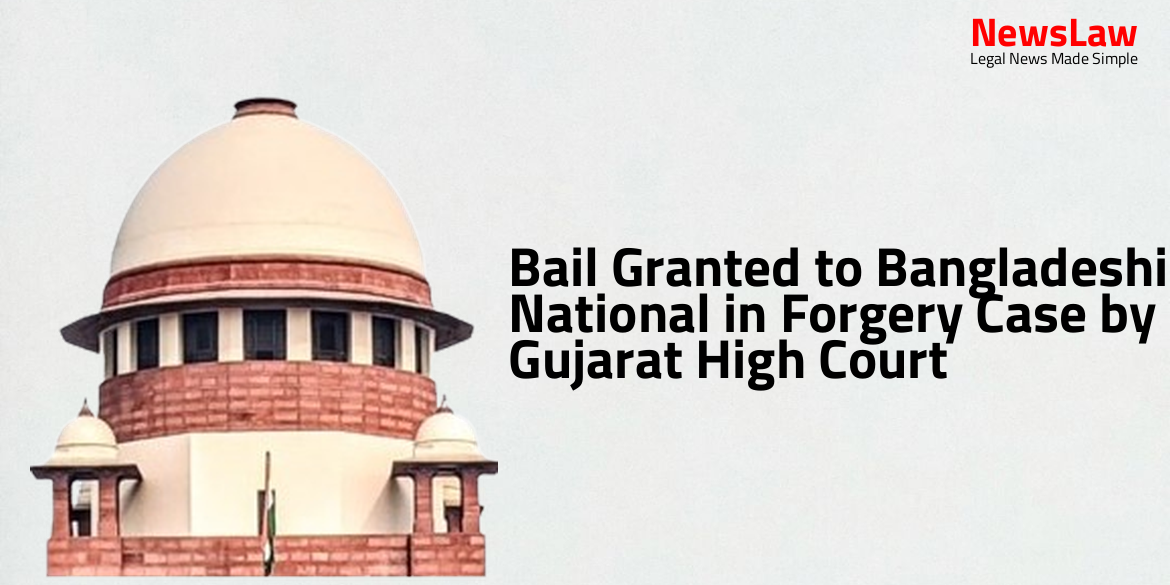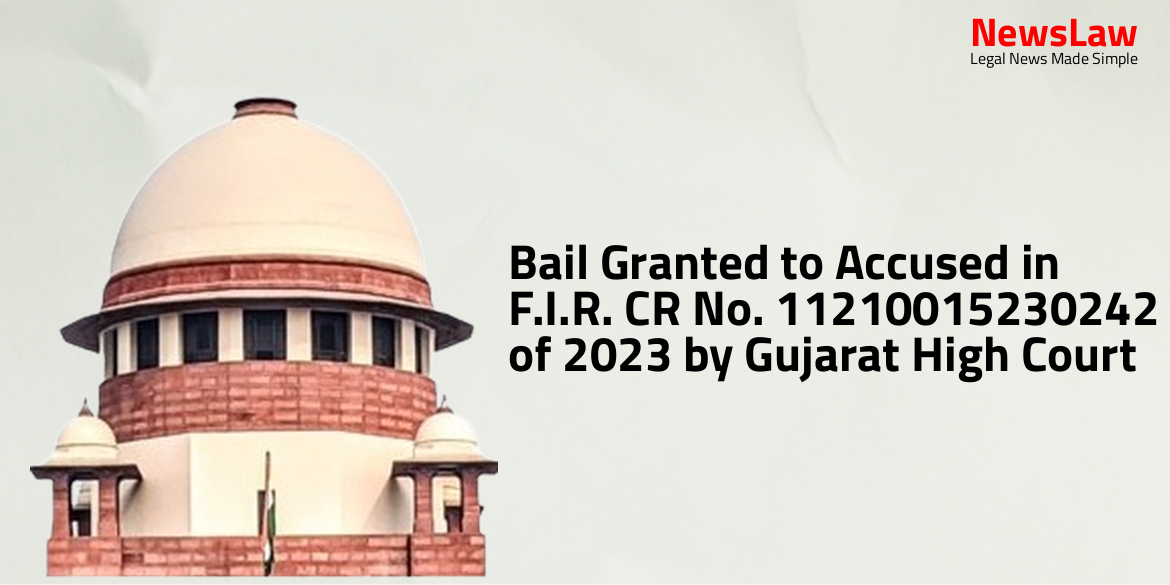In a significant ruling, the Gujarat High Court has set aside and quashed the detention order under the PASA Act in the case involving the petitioner challenging the order. The judgment carries implications on legal precedents and rights of individuals in preventive detention cases. Learn more about the details and impact of this crucial decision by the Gujarat High Court.
Facts
- The petitioner has challenged the order of detention under the Gujarat Prevention of Anti-social Activities Act, 1985 (PASA Act).
- The petitioner seeks to quash the order and be released immediately.
- The order was passed by the District Magistrate of Kutch – Bhuj on 22.11.2023.
- The detention was made under Section 3(1) of the PASA Act.
- The petitioner is currently held in detention based on this order.
Issue
- The issue in this case involves a substantial question of law regarding the interpretation of the Constitution of India.
- The interpretation of certain orders made under the Constitution is also in question.
- The resolution of this issue will have far-reaching implications on the legal framework and precedents in India.
Arguments
- The detaining authority failed to substantiate that the alleged anti-social activities of the detenue adversely affect or is likely to affect the maintenance of public order.
- Merely two FIRs under the Prohibition Act being registered against the detenue does not impact public order.
- The petitioner was granted bail in connection with both FIRs, indicating a lack of necessity for detention.
- The activities of the petitioner may disturb law and order, but not breach public order.
- The order of detention was passed about four months after the petitioner was released on bail, raising questions about the necessity of detention over milder measures like bail cancellation.
- The detaining authority’s subjective satisfaction is considered vitiated due to the circumstances.
Analysis
- Contravention of any law affects order, but before it can affect public order, it must impact the community or the public at large.
- Acts of assault or injury to specific persons may not lead to public disorder.
- Quarrels, fights, and assaults between two individuals may cause disorder but not public disorder.
- Reference to Pushker Mukherjee v/s. State of West Bengal [AIR 1970 SC 852] where the distinction between ‘law and order’ and ‘public order’ was discussed.
- The Supreme Court observed that ‘public order’ may not encompass every kind of order infraction, emphasizing the need for a broader impact on the community.
- If disorder is contained within a specific area or group without affecting the larger public, it may be classified as disorder but not public disorder.
- A line of demarcation should be drawn between serious and aggravated forms of disorder affecting the community and minor breaches of peace of local significance.
- Preventive Detention Act is applicable to cases directly affecting public order, not just mere disturbances of law and order.
- Subjective satisfaction of detaining authority must be reached before passing an order of detention.
- Impugned order of detention was passed after a 4-month delay from the petitioner’s release on bail, without resorting to the lesser drastic remedy of cancellation of bail.
- Subjective satisfaction for the impugned order of detention is held to be vitiated as per a recent Supreme Court decision in the case of Shaik Nazeen v/s. State of Telangana.
- In cases where a detenu is deemed a menace to society, the prosecution can pursue cancellation of bail or appeal to the Higher Court as a remedy.
- Simply registering FIRs does not establish a link to a breach of public order, and thus, preventive detention is not a valid remedy in such cases.
- The authority cannot invoke power under section 3(2) of the Act without relevant and cogent material supporting the need for preventive detention.
Decision
- The order of detention dated 22.11.2023 has been quashed and set aside.
- The detenue is ordered to be set at liberty forthwith, unless required in connection with any other case.
- The rule is made absolute.
- Direct service is permitted.
- The petition has succeeded and is allowed.
Case Title: BHAGIRATHSINH ALIAS BHAGI DURGASINH JADEJA THROUGH HIS RELATIVE LANGHA RAHIMBHAI KARIMBHAI Vs. STATE OF GUJARAT
Case Number: R/SCA/20509/2023



